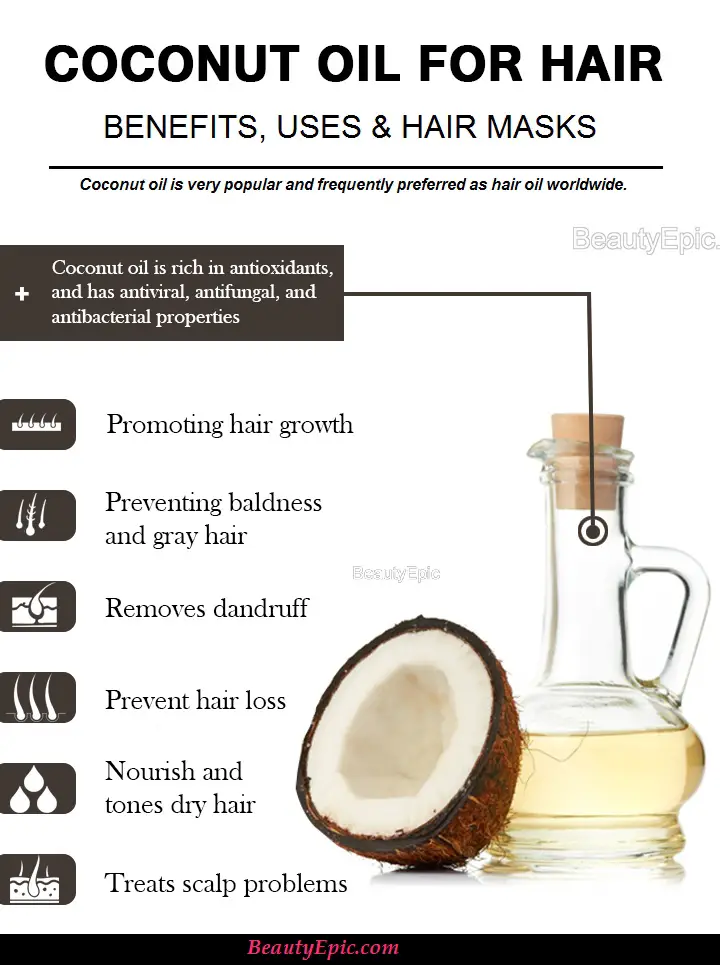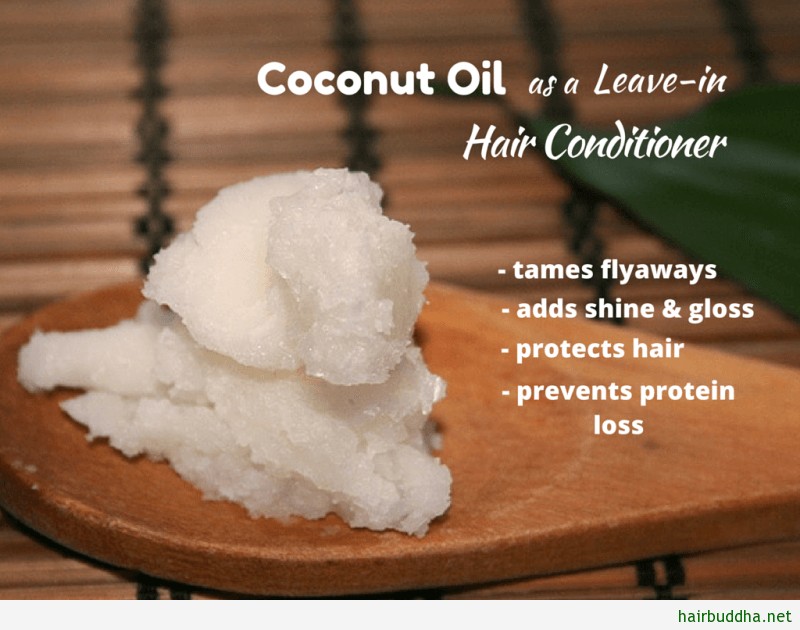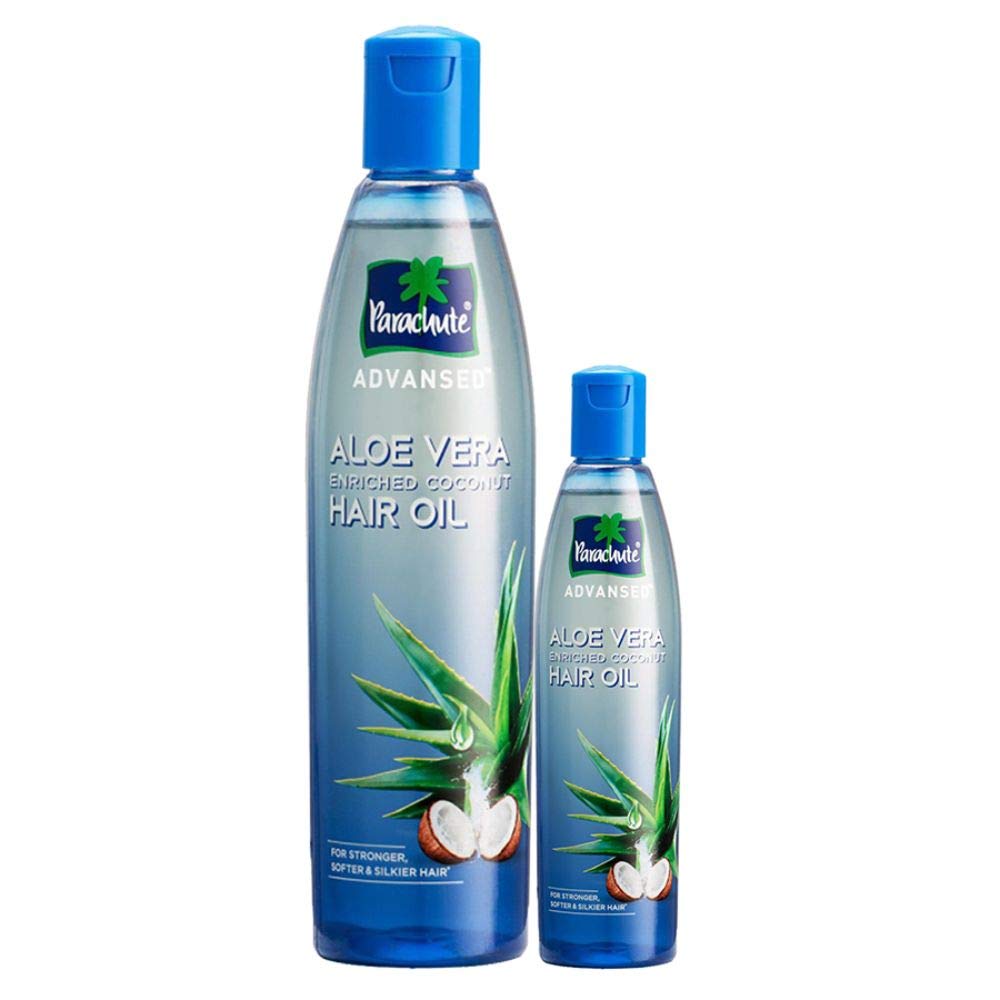Table Of Content

Applying coconut oil to hair is all about finding what works best for you, a process that will likely involve some trial and error. One person’s high-shine hack may be another’s hyper-greasy hair day, so be sure to start with diminutive amounts, and allot time for potential restyling. When selecting a beauty-ready coconut oil, choosing an unrefined (or virgin) option is your best bet.
Kaleidoscope Miracle Drops Coconut Oil
This gives coconut oil a long, straight structure, which is more easily absorbed deep into the hair shaft. One older study published in 2003 examined the effects of applying coconut, sunflower, or mineral oil to hair before or after washing (3). The downside of using coconut oil in the hair is that, well, it's oily—so strands might be getting much-needed moisture, but they could feel weighed down in the process. The trick is to not use it too often and to thoroughly rinse it out after you've applied and let it work its magic.
How to Use Coconut Oil on Your Hair, According to Experts
Lean over the sink, and pour the remaining mixture over the hair, massaging lightly. Apply the solution all over the scalp, and massage it in, pulling through the ends. Disguise split ends and nourish them at the same time by using just a tiny bit of coconut oil.
People with curly or Afro hair
When applied to hair before washing, coconut oil has been shown to reduce protein loss more than sunflower and mineral oils. You can work a very small amount of it into the ends of your hair after showering as a detangler or daily moisturizer for very dry hair. On day two or three of curly styles, when you don't have time to start all over with wash day, just lather a generous amount from root to tip of your curls.
Why Coconut Oil Can Dry Out Curly Hair
This is actually where the issue lies, especially when it comes to curly hair. If coconut oil prevents water from getting into the hair shaft, it can lead to hair that becomes drier or more brittle over time. "Coconut oil can coat the hair shaft. When using it alone, it can become a barrier to water and any other product to hydrate the hair, thus making the hair drier," she explains. Yes, coconut oil is a great styling agent, and it’s free from the dangerous chemicals in conventional hair care products. Study results published in the Journal of Cosmetic Science suggest that is able to reduce protein loss in both damaged and undamaged hair. It can be used before shampooing your hair or as a post-wash grooming product.
How Does Coconut Oil Improve Hair and Scalp?

“And providing the hair with moisture can help make the hair more manageable and less prone to breakage,” Dr. Lal explains. Coconut oil may help heal or prevent dandruff and other fungi on the scalp. More research is needed to know if coconut oil has the same health benefits on the skin and scalp. For most treatments, experts recommend rinsing coconut oil out post-use—though a small amount used as a styling oil offers an exception. We suggest starting with an overnight mask or scalp treatment to see how your hair responds.
Best restorative: Paul Mitchell Tea Tree Restorative Hemp Bundle
Borysiewicz says that you can use coconut oil as a split-end treatment for extra dry hair while on the go. However, the best option is to apply the oil on to damp hair after washing. Hair doesn’t have the ability to digest or metabolize coconut oil like the digestive system does. For this reason, try eating coconut oil instead of putting it on your hair for the most benefit. Coconut oil’s natural health benefits can help improve the rate of hair growth from the inside out.

The double-wash means that this process is best for those with thick, hearty strands. Whether you’re already a convert or are just coconut-curious, here’s what you need to know about coconut oil for hair health—and how to incorporate it into your hair care routine. They found that coconut oil was better at preventing protein loss than both the mineral and sunflower oils when applied either before or after the hair was washed. So, to best understand how to use coconut oil on your hair the right way, we tapped three experts to share their knowledge. This study also sized up the effects of mineral oil and sunflower oil on hair. This shampoo and conditioner apparently prevent damage and frizz.
The oil is derived from the raw, mature coconuts and is comprised of 100%, predominantly unsaturated fat. Coconut oil’s fatty acids (principally lauric acid) that can lend to hair health when employed correctly. “Coconut oil has benefits for all hair types, but is best used on dry, damaged, or color-treated hair to lock in moisture and prevent breakage,” says celebrity hairstylist Andrew Fitzsimons. I'll start this off by talking about some of the benefits coconut oil can offer the hair. Coconut oil can help prevent protein loss in the hair because the proteins found in it are really similar to those in our own hair. This can help repair damage and prevents it from happening in the future.
Can Coconut Oil Turn White Hair Into Black? TheHealthSite.com - TheHealthSite
Can Coconut Oil Turn White Hair Into Black? TheHealthSite.com.
Posted: Wed, 28 Feb 2024 08:00:00 GMT [source]
If the problem is fungal, or if you are struggling with dry skin, topical applications of coconut oil can make a difference. The essential nutrients, including the lauric acid, penetrate the hair shaft and improve the overall health of the hair. While you could use plain coconut oil to hydrate your strands, you could also take the easy way out and use this TPH by Taraji Ride or Die Leave-In Conditioner.
Follow with a gentle cleanser like this homemade rosemary mint shampoo. Coconut oil is also sometimes used to improve volume or shine, but the experts recommend not getting carried away as applying too much may leave one's hair feeling greasy. And because coconut oil is a natural product with no additives, it's considered safe and rarely causes scalp irritation − though it can cause an allergic reaction in anyone allergic to coconuts. Anyone with dry, dehydrated hair may benefit from applying coconut oil.

No comments:
Post a Comment